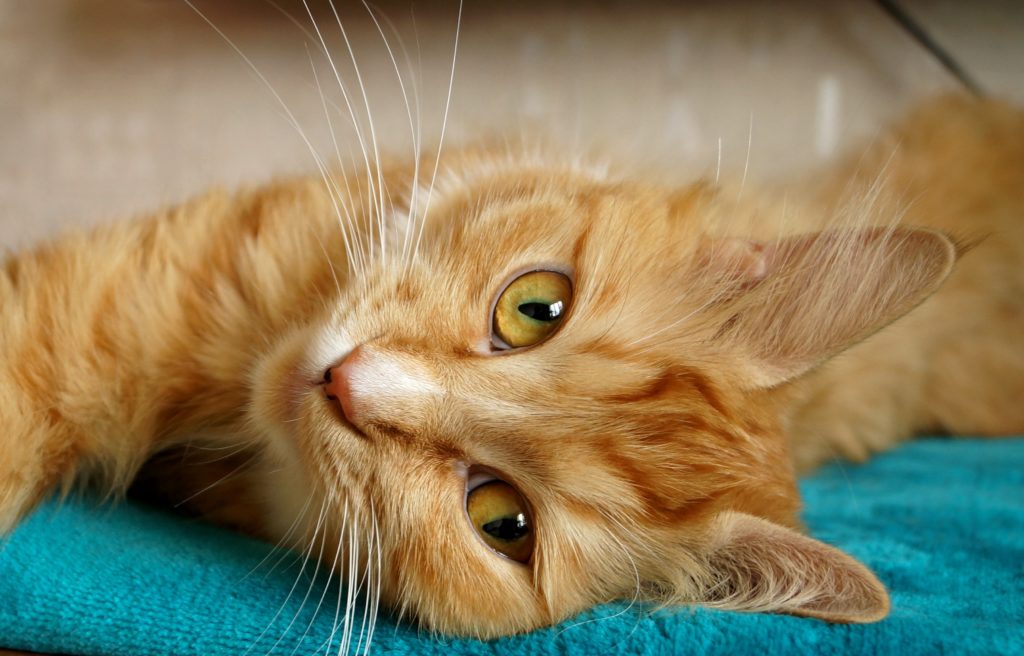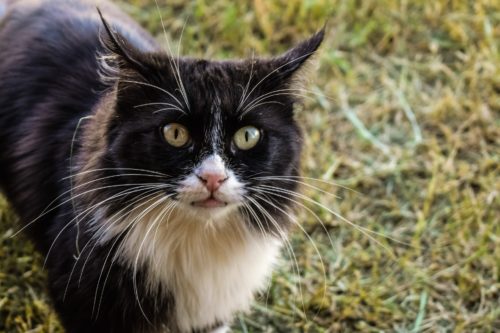What causes liver disease in cats, and just how important is the liver to normal, everyday functions?
The liver is an essential organ for the body to function well. It is responsible for metabolizing proteins, fats, and carbohydrates, storing vitamins and minerals, and also for digesting food and detoxifying waste.
Liver Disease in Cats Defined
Liver disease is defined as any condition which damages the liver, leading to a loss of function. It can happen as a result of sudden onset (acute) or slowly and progressively over time (chronic).
Types and Causes of Liver Disease in Cats
Unlike many other diseases, liver disease can happen to any cat regardless of age, with the exception of the following:
- A portosystemic shunt or toxic hepatopathy (ingestion of toxins or drugs): most often occurs in younger cats
There are several types of liver disease in cats, each caused by different factors:
Toxic Hepatopathy, or Damage by Toxins
The liver processes toxins, both ingested and from the environment. Unfortunately, toxins lie in many common household items. Household cleaners, insecticides, plants, medicine, and other substances can expose cats to damage by toxins.
Some of the most common, overlooked toxins include:
- An overdose of vitamin A and iron
- Naphthalene, which is found in mothballs
- The common painkillers Acetaminophen and Aspirin
- Methimazole
- Xylitol
- Effexor
- Diazepam
- And more
If you are concerned with hidden toxins at home, talk to your veterinarian. He or she will provide the best plan to identify and remove as many toxic substances as necessary, guarding the health of your cat—and your entire family.
Fatty Liver Disease
Fatty liver disease, also known as Hepatic Lipidosis, is the most common type of liver disease found in cats. This type occurs when cats stop eating. When this happens, the cat’s body will look to fat stores for fuel, sending these to the liver to be broken down for nutrition. Unfortunately, the liver can become overwhelmed by this source of fat, leading to a buildup which interferes with normal functions.
Inflammatory Liver Disease
The second most common type of liver disease, this type is caused by inflammatory, infectious disorders of the liver and/or biliary tract.
Causes of infection include:
- FIP, or Feline infectious peritonitis: a viral disease in cats caused by strains of the feline coronavirus
- Pancreatitis
- IBD, inflammatory bowel disease
- Bacterial infection
- Parasitic infection, including toxoplasmosis
Toxoplasmosis
Toxoplasmosis is an infection in cats caused by the Toxoplasma gondii (T. gondii) parasite. It is one of the most common parasitic diseases to affect nearly all animals and humans, with cats as the leading hosts.
When cats contract the T. gondii parasite, symptoms are not always evident off the bat. However, damage to the liver and other organs can still occur—mostly in cats with compromised immune systems.
Liver Shunt
Liver shunts, also known as portosystemic shunts, result from a miscommunication between the portal and systemic venous systems. This leads to intestinal blood being delivered into systemic circulation without first being detoxified by the liver.
Liver shunts may be acquired, although most are congenital. Known as CPSS, cats will show clinical signs before 12 months of age.
Symptoms of Liver Disease in Cats
Based on the various types of liver disease in cats, symptoms will also vary. Early symptoms include a loss of appetite, or anorexia, and weight loss.
As the liver becomes more and more damaged, however, further symptoms will develop:
- Jaundice (yellowing of the eyes, skin and mucous membranes)
- Drooling from nausea
- Lethargy
- Diarrhea or vomiting
- Bad breath
- Increased urination and thirst
- Muscular atrophy
- Swelling of the abdomen
- An enlargement or decrease of the liver
- Dark, tarry stools, known as Melena
- Neurological signs, such as seizures or changes in behavior
- Coma
If you notice any of these symptoms, make an appointment with your veterinarian. The sooner the liver disease is diagnosed, the sooner you can help improve your cat’s health.






